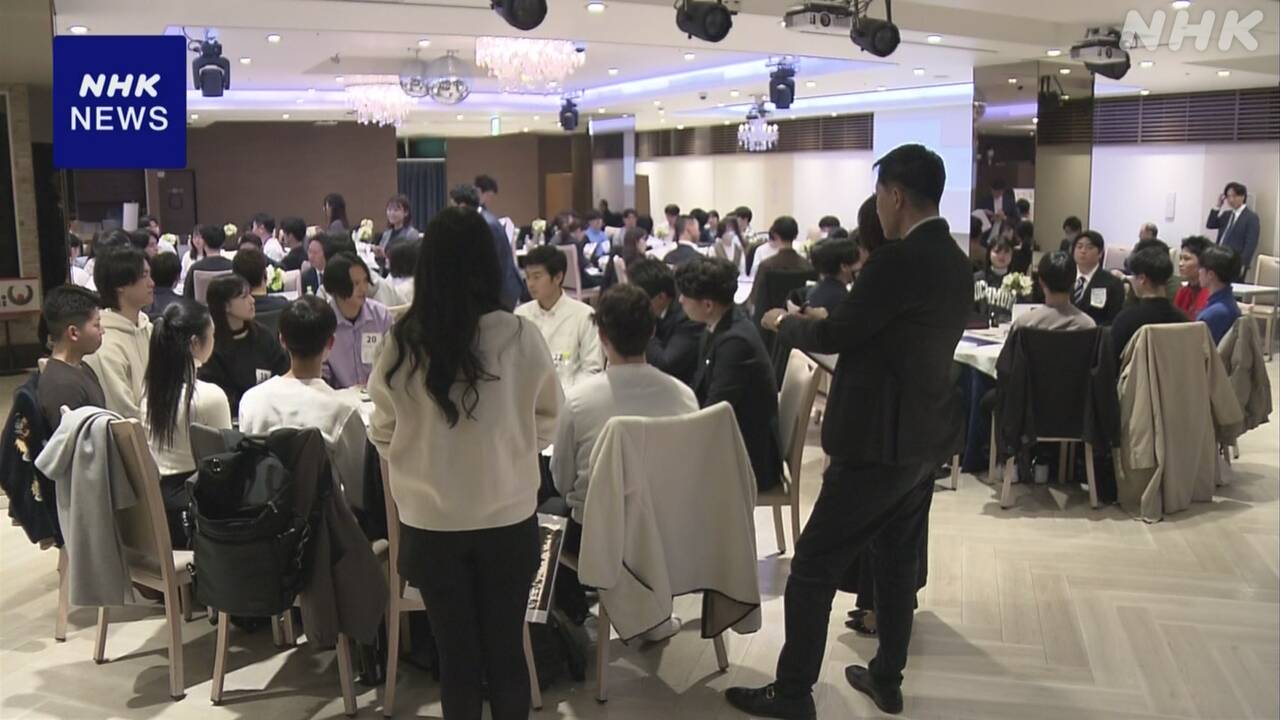Job hunting has begun in earnest for university students who will graduate next spring.
As competition for human resources is said to be fierce, a unique initiative is underway in which university students rate the managers of companies they wish to work for.
This event was held by a Tokyo-based recruitment consulting company on February 28th at a wedding hall in Osaka, and was attended by 60 students and 6 business executives from the Kansai region.
There are special rules for the event, and after the business owners and students have had a chat for over two hours, both the company and the students are given a score out of 5 based on whether or not they want to work together. Masu.
The top two teams based on the total of their scores are considered the ``best match,'' and the managers and students proceed to a ``dinner party,'' which is essentially the final interview.
During discussions with students, many managers were seen conveying their own philosophy and values to the students, and Seiji Takasaki, president of the company that planned the event, said, ``Managers are more important than salaries and benefits. I believe that being able to empathize with employees' ideas is the best way to prevent them from leaving the company, and I am committed to devoting time to this exchange.''
The Ministry of Health, Labor and Welfare announced last October that the average turnover rate for university graduates within three years of joining the company is 32.3%, and exceeds 40% for companies with fewer than 100 employees.
Small and medium-sized enterprises tend to have more young employees leaving their jobs, and how to prevent mismatches is a major issue.
At this day's event, 14 best matches were created, and the president of a real estate company said, ``Job hunting is just like marriage or love, and I believe it is important to evaluate each other from a fair standpoint, so I would like to provide legitimate service.'' I feel that."
In addition, a third-year male university student who went to a dinner party with the managing director of a pachinko parlor company said, ``I gave it a high score because there was an atmosphere that accepted me as I was. It may be presumptuous, but being able to score yourself and have companies choose you gives you confidence.''
Expert: “Mutual consent will be stronger”
Regarding this event, Seito Furuya, a senior researcher at Recruit Works Institute who is familiar with the employment situation of young people, said, ``360-degree evaluations,'' in which managers are evaluated by their subordinates, are now widespread in companies, I feel that this is an indication that this is spreading across the board.I believe that the fact that the scoring system strengthens mutual understanding is valued.''

